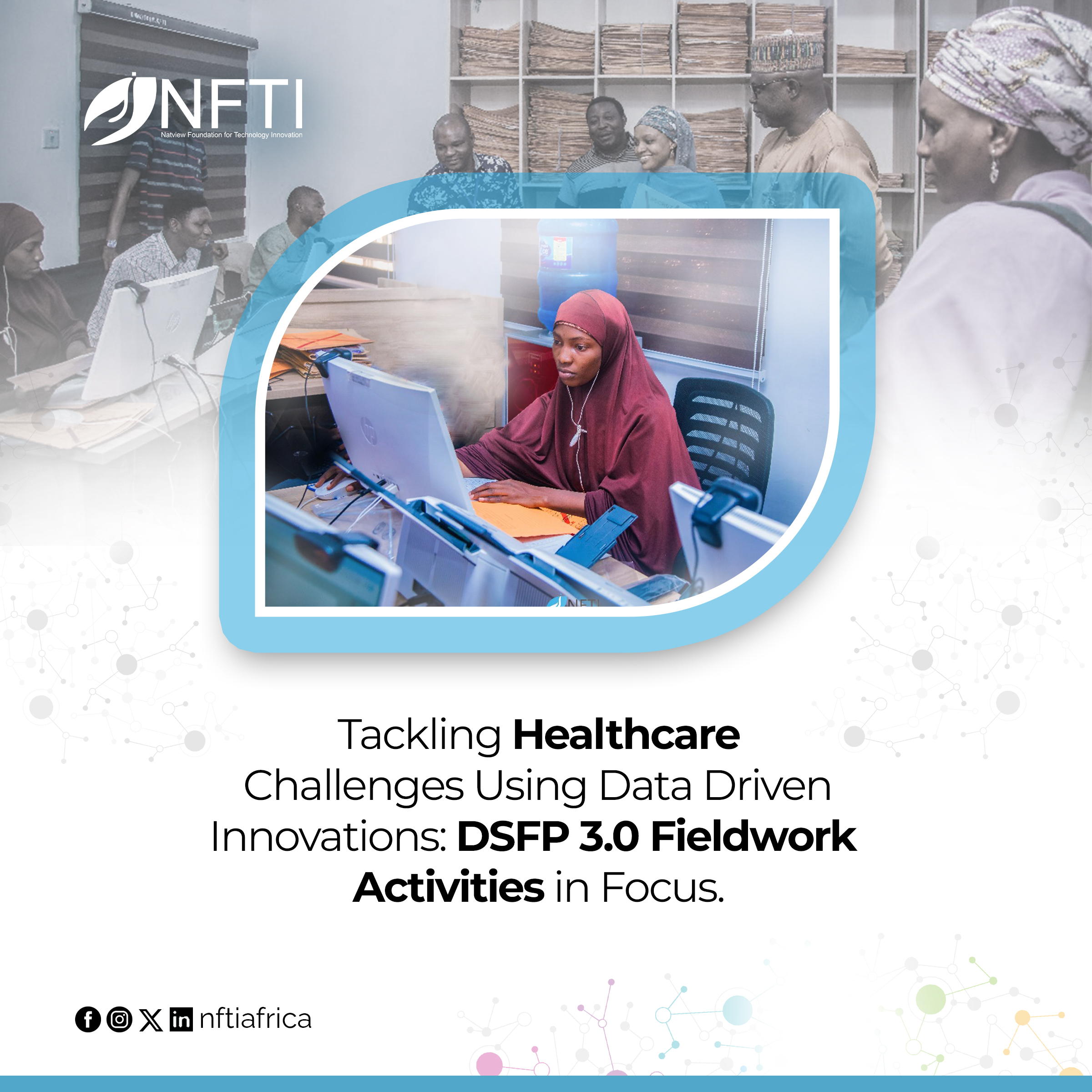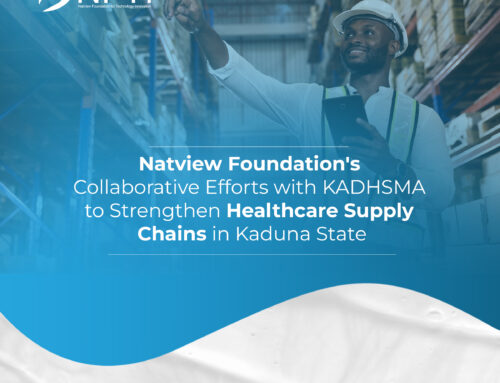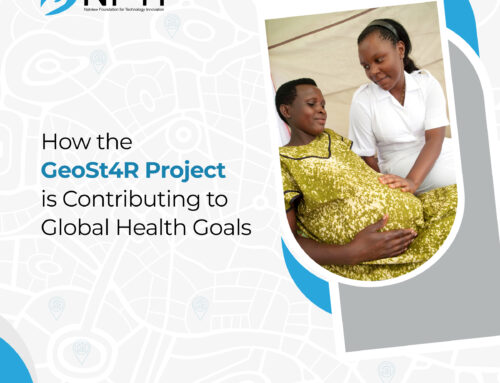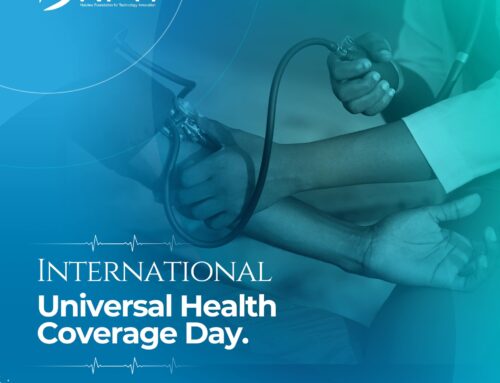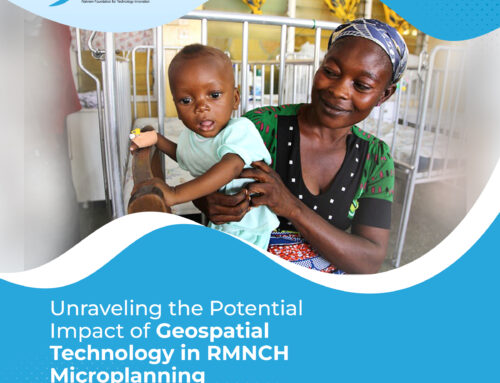The Click-On Kaduna Data Science Fellowship Programme (DSFP) is positioned as a leading initiative within the strategic Data Lab Project, reinforcing Kaduna State’s dedication to leveraging data for informed decision-making. Since its inception, the program has equipped 110 youths across three cohorts with robust data management skills, enhancing the state’s capacity for data modeling across critical sectors of the state’s economy. 70 fellows from the first two cohorts have successfully completed the fellowship, with the ongoing implementation of the third cohort, consisting of 40 fellows from diverse disciplines, signaling another leap forward in supporting data efforts within the state.
The DSFP journey spans six transformative months, comprising three months of rigorous in-class activities and an equally intensive three-month fieldwork activity phase. This article focuses on the program’s second phase, which sheds light on the diverse ways in which fellows of the third cohort, popularly known as the DSFP 3.0 fellows, were involved across several portfolios, all of which were in line with important state health programs. The program funded by the Bill and Melinda Gates Foundation, placed fellows in close contact with the real-world application of data science, as opposed to more conventional academic exercises. The goal was clear: leverage data to drive positive changes in the critical health sector. Equipped with newfound skills and guided by experienced mentors, fellows navigated through complex data landscapes, unraveling insights and solutions along the way.
Throughout the fieldwork period, fellows actively contributed to the Kaduna state government through a variety of portfolios, demonstrating their mastery of data administration and analysis. For instance, they were instrumental in optimizing data pipelines and workflows within the Integrated Supportive Supervision (ISS) framework, ensuring data accuracy and efficiency. This included tasks such as extracting ISS data from the ODK central server, automating processes, and integrating pipelines with the Azure platform seamlessly.
Within the domain of Supply Chain Management (SCM), the fellows skillfully performed Python-based dataset cleaning and crafted insightful dashboards using Power BI tools tailored for the Kaduna State Health Supplies Management Agency (KADHSMA). Also, these fellows took on the critical task of integrating the National Health Facility Assessment Tool into the HEFA Advanced Analytics Platform, emphasizing data hygiene and management strategies within the ISS platform. This strategic move streamlines data flows into the Health Facility Analytics (HEFA) Platform and will enhance decision-making processes.
Within the Kaduna State Primary Healthcare Board’s (SPCHB) Human Resources for Health Management Information System (HRH) portfolio, fellows supported the digitization and verification of HRH files, ensuring data accuracy and integrity for effective workforce management. The Kaduna State Bureau of Statistics (KDBS) Embedded Support portfolio witnessed another significant area of contribution, where fellows engaged in citizen perception surveys using telepolling services. They contributed to validating the sample frame for Telepolling and worked closely with the Department of Census and Survey on insightful price statistics related to medicine and medical consumables. The fellows also delved into the functionalities of the CKAN platform. They studied the CKAN platform and its functionality, supported its setup and customization, and performed testing for the demo. Watch out for a future article on the CKAN platform and its expected benefits for Kaduna State.
In line with efforts to enhance community-based healthcare management, fellows meticulously cleaned data within the Community-Based Health Management Information System (CBHMIS) framework, ensuring data accuracy crucial for impactful dashboard development. They also actively engaged in the review and assessment of health facility classification documents, contributing significantly to standardized classification frameworks across different data sources. This involved gathering and reconciling facility details from various platforms like HEFA, HRH, ISS, HRH, and DHIS 2, aligning them with the facilities listed in the Kaduna State 2024 micro plan. Through meticulous comparison and data reconciliation processes, fellows created robust business rules for the classification of facilities, and this has ensured consistency and accuracy in facility categorization across the state.
While individual contributions within the DSFP 3.0 Fieldwork Activities may seem limited in scope, their cumulative impact is undeniably significant. Each task, whether optimizing data pipelines or digitizing records, supports the work of the relevant MDAs and partners in improving overall data quality and system efficiency. These seemingly small contributions within three months collectively form part of the recipe for informed decision-making processes within Kaduna State.
The fellows’ activities directly and positively impact the lives of citizens in Kaduna State. In general, the state’s residents will reap the benefits of data transparency, better decision-making, more focused interventions, and more efficient use of resources. The optimization of data pipelines and workflows in Integrated Supportive Supervision (ISS), which ensures the accurate collection of health data, led to improved healthcare services and outcomes for citizens. Through digitization of HR records and citizen perception surveys, the fellows contribute to streamlined government processes and policies, creating a conducive environment for citizens to access quality healthcare services efficiently.
Guided by the implementation team from the Kaduna State Bureau of Statistics and the Natview Foundation for Technology Innovation, fellows within their respective portfolios cultivated a culture of meeting deadlines and upholding quality standards, resulting in impactful outcomes. The DSFP 3.0 Fieldwork Activities demonstrated the fellows’ ability to adapt, think creatively, and work as a team to solve real-life data problems. Throughout three consecutive cohorts, the Data Science Fellowship Program has demonstrated, time and time again, the efficacy of practical, problem-based learning, and that is what makes the program stand out. Its evolution into a powerhouse for data-driven change underscores Kaduna State’s progressive strides toward evidence-based governance. The ongoing efforts of DSFP fellows in bridging data gaps and operationalizing innovative solutions signal a brighter, data-driven future for Nigeria as a whole. Kaduna has become an example of evidence-based governance thanks to the program’s emphasis on developing local talent, showcasing how learning should be done, and setting the pace for evidence-based decision-making powered by local talent ready to make a global impact.

